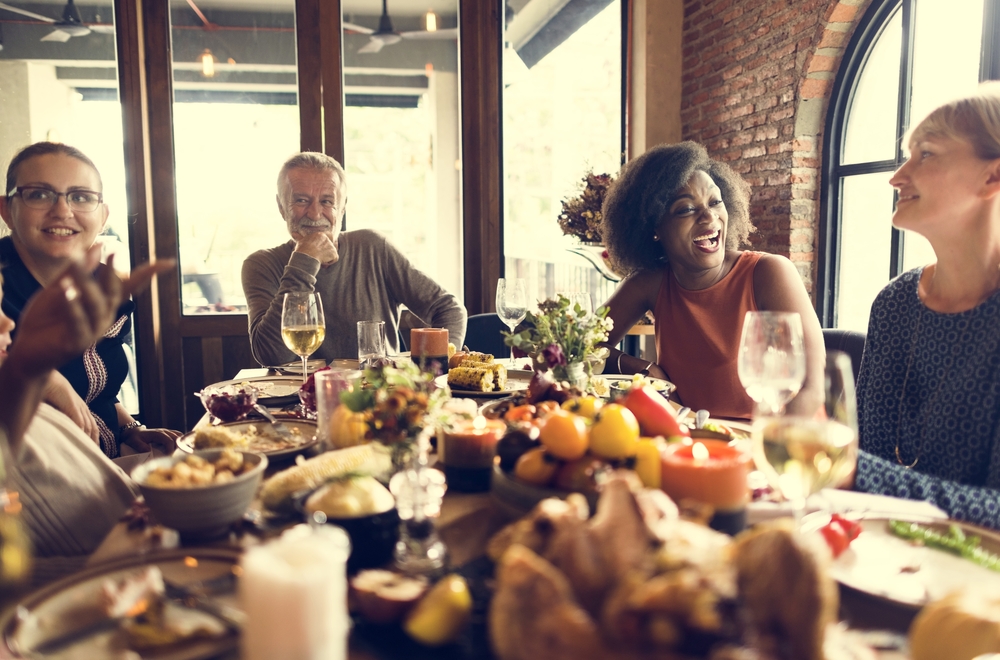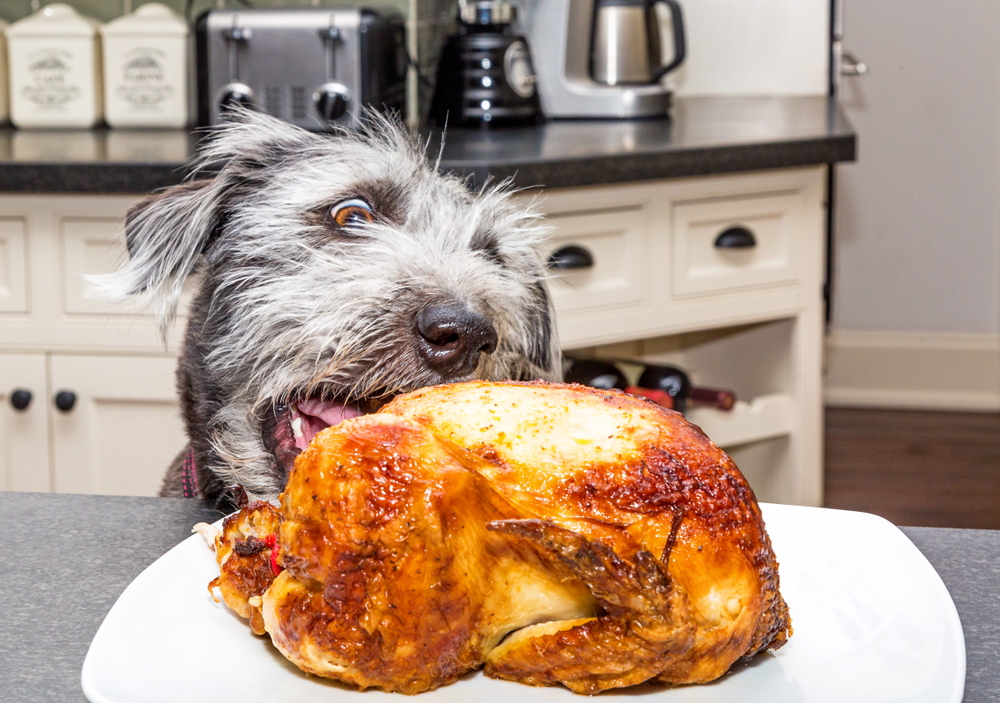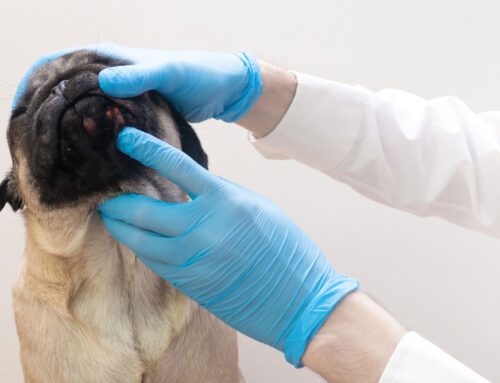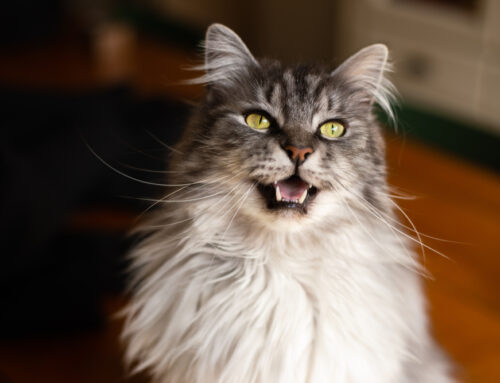Did someone say mashed potatoes laden with butter and gravy? Or apple pie à la mode? Nothing says “Thanksgiving” like rich foods, delicious treats, and time with loved ones. While many of us adore the holidays, Thanksgiving and pets don’t always mix—especially when you consider weight gain and exposure to high-fat treats. But, with a little effort and determination, you can keep your pet safe—and keep the pounds off. In the following three scenarios, we explore solutions to some common holiday problems:
Scenario #1: Too many temptations
You’re ecstatically baking and cooking away for the holiday weekend. The lineup includes mom’s homemade gravy, Grandma Jo’s creamed onions, and Great Uncle Jim’s famous pumpkin pie with fresh whipped cream. Your furry family is watching your every move—every stir of the spoon, and every whip of the whisk. You can’t help but notice—or resist—their desirous eyes as they look right at you, drool and all. A little taste won’t hurt, right? You decide to indulge them, and offer a small plate of your day’s work.
- The problem — While a tiny taste of whipped cream will unlikely cause a significant issue, feeding your pets high-fat, sugar-laden foods is a well-known recipe for disaster. Not only can this lead to gastrointestinal upset—and who wants to deal with a vomiting dog at 3:00 am?—but more dangerous consequences, like pancreatitis, may evolve. Not to mention, calorie-loaded foods contribute to weight gain, which is a huge (pun intended) problem in pets.
- The solution — If resisting your pet’s precious peepers isn’t possible, offer them a healthier, still tasty alternative. You might be surprised at how eagerly some dogs will gobble up plain rice and steamed carrots. Add in a slice of lean turkey meat—holding the skin and the gravy—and you’ll have one happy pup.
Scenario #2: Too many pets
You’ve invited Aunt Ida and Uncle Bill to stay with you for Thanksgiving weekend. They’ll be arriving shortly, along with their two precocious miniature schnauzers, who they regularly feed from the table. Your dogs and cats aren’t familiar with this side of the family, who will be staying in your spare room—your pets’ favorite play area.
- The problem — This scenario poses several different issues. Firstly, your pets are potentially at risk for receiving high-fat table scraps from your well-meaning family members, which can not only contribute to illness and weight gain, but also cause tension among the animals. Secondly, allowing new people and pets into your home without proper introductions to your own furry family members may cause anxiety or sometimes aggression, especially when people food is involved. This is exacerbated by the fact that these strangers will be hanging out in your pet’s favorite place, further increasing tension.
- The solution — If your pets are particularly anxious, consider asking your guests to leave their pets at home. Be kind and courteous, but be clear of your house rules, and that you don’t permit feeding your pets table food. Several days before your guest’s arrival, slowly remove your pet’s favorite toys and climbing structures from the spare room into a different, quiet area of the home. This will help your pet prepare for the change, and provide them with their own safe retreat should tensions rise.
Scenario #3: Too much activity

You’ve packed your holiday weekend schedule to the brim. Wednesday evening cocktails with friends, Thursday morning breakfast with the kids, afternoon football with the neighbors, and Thanksgiving dinner with the family. Nearly every hour for the entire weekend is scheduled with food, activities, and family fun.
- The problem: Packing your schedule so tightly means you may not have time to fit in your pet’s daily exercise or playtime, which may contribute not only to unwanted weight gain, but may also heighten your pet’s anxiety or loneliness.
- The solution: Try to prioritize your pet’s exercise every day, no matter how busy you are. Wake up a tad earlier to squeeze in a morning play session with your cat, or include your family and friends in a dog park outing.
With pet obesity on the rise, recognizing a weight problem in your pet is crucial. Owners often have difficulty recognizing that their pet is overweight, let alone figuring out how to combat weight gain.
Palisades Veterinary Hospital is here to help. Whether you need professional input on your pet’s body condition or a tailored weight loss plan, we’re here every step of the way. Contact our team today to learn more about weight management in pets, or with questions regarding Thanksgiving safety.







Leave A Comment